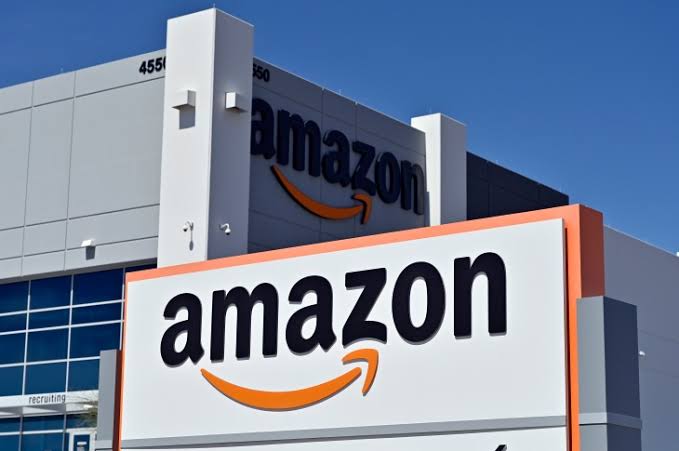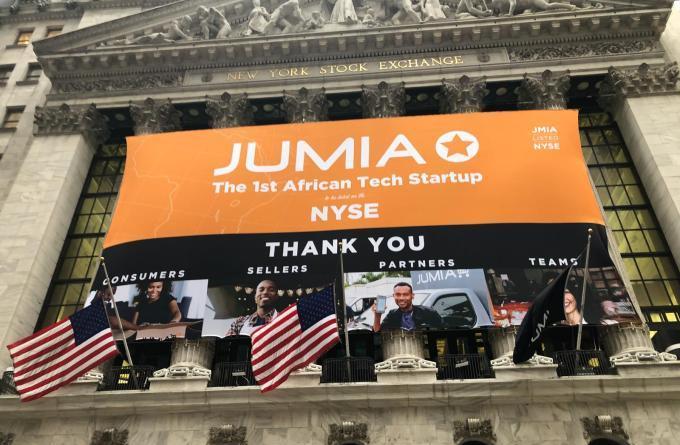Business
Rising delivery costs worsen e-commerce business crisis

...as shoppers opt for ‘pick up centres’, physical shops to save costs
E-commerce firms operating in the country are reeling from the negative effects of fuel subsidy removal as Nigerian badly hit by hard times continue to resort to austerity measures to stay afloat, Business Hallmark findings have revealed.
According to findings, online shoppers have resorted to visiting pick-up centres to pick up ordered goods, as well as physical stores and markets where they directly shop for their basic needs in an effort to avoid high delivery fees charged by operators.
Data obtained by BH at the weekend indicated that persistent decline in sales and revenues have slowed down the ecommerce industry’s rapid growth which depend on large volumes of orders to recover their huge operating costs.
Leading the way in declined sales and revenue loses is e-commerce giant, Jumia Technologies AG, which reported a staggering $20.2 million operating loss in the second quarter of 2024 compared to the same period in 2023, representing a 17 percent decline in revenue.
Further analysis of the financial report released by Jumia showed that while the e-commerce giant managed to reduce its losses by eight percent year-over-year, the decline in Gross Merchandise Value (GMV) by five percent signals deeper issues.
On November 7, 2024, Jumia Technologies AG also reported a challenging period in the third quarter of 2024, declaring an operating loss of $18.3million, a slight decline from the $20.1million loss recorded in the same period in 2023.
According to Jumia’s Q3 results obtained by our correspondent, the company recorded a 13% year-over-year drop in revenue to $36.4 million.
The firm linked the drop in revenues to macroeconomic pressures in its African markets, especially Nigeria and Egypt, which it claimed weakened consumer demand.
While other E-commerce firms have failed to make available their financial reports for public scrutiny, sources in some of the firms operating in the country, including Konga and jiji, confirmed that the companies are also passing through hard times occasioned by low sales and falling revenues.
While the companies struggle are emblematic of the broader challenges facing the sector in Nigeria, BH gathered that the removal of fuel subsidy by the current administration has further aggravated their struggles.
It would be recalled that President Bola Tinubu had in his inaugural speech on May 29th, 2023, announced the removal of fuel subsidy.
Immediately after the announcement, prices of petrol almost tripled to N550 from its old price of N185 to N195.
Meanwhile, with the unification of the multiple foreign exchange windows by the Central Bank of Nigeria (CBN) which led to the devaluation of the naira and surge in the landing costs of petroleum products, the Federal Government decided to completely pulled the plug on fuel subsidy.
As a result, the official price of petrol in filling stations across the country is now N1,025 and above.
Expectedly, transportation costs have continued to soar with drivers and delivery companies adjusting their fares to the ever changing petrol prices.
One of the sectors adversely affected is ecommerce business. Using the growth trend of the last three years to make projections, a research agency, Statista, had predicted that the nation’s E-commerce market will hit $9.02billion by 2023 with an annual growth rate of 11.74 percent.
The research firm went further by projecting the number of users in the E-commerce market to be 143.9m users by 2027, while user penetration will be 45.6 percent in 2023 and 58.7 percent by 2027.
However, the reverse seems to be the case as the e-commerce market is presently facing economic headwinds as the effects of soaring petrol prices continued to bite harder and more Nigerians fall into poverty.
The sharp drop in volumes of sales, multiple sources in the industry told BH, contributed to the loss making trend currently experienced by operators.
BH investigation revealed that the cost of delivering goods purchased from e-commerce firms to buyers’ given addresses had more than doubled, and in some cases tripled.
For instance, in January 2023, four full months before the removal of fuel subsidy, Jumia and Konga were charging between N400 to N1,800 on each good delivered to customers around Ogba, Fagba and Iju axis in the Ifako-Ijaiye Local Government Area (LGA).
The cost of delivery varies according to the sizes of goods to be delivered and distance.
However, since the new fuel regime came into force, the cost of delivery, BH observed, has skyrocketed.
According to shoppers in the mentioned areas who spoke to our correspondent, they now pay between N950 and N2,800 as cost of delivery for small items like phone chargers, sandals, aprons and phones ordered from online firms.
An habitual online buyer who resides in Olaniyi, New Oko-Oba area of Lagos, Sumbo Olubiyi (not real names), told BH that she was forced to reconsider her preference for online shopping after noticing a steep rise in delivery cost.
“On November 6, 2024, I ordered two Samsung phone chargers from Jumia with each costing N3,599, totalling N7,198 for the two.
The order was proceeding well until I got to the ‘Add to Cart’ and ‘Proceed to Payment’ sections. I was shocked when I saw that my total payout had risen to N9,178 from the initial cost of N7,198 quoted for the two chargers.
“When I calculated it, I found out that the sum of N1,980, (N990 for each) was charged for the delivery of the two chargers at the same address.
“I was forced to reduce the item to one and ended up paying only N4,589 for the product and delivery fees to save cost”, Olubiyi stated.
Another buyer who spoke to BH on the development, Cletus Ibe, who resides in the Abule Egba area of Lagos, narrated his recent experience while purchasing goods on the Konga platform.
“I recently ordered several items, including a 3-D patterned centre rug, travel bag and a slip-on from Konga. The cost of the goods put together added up to a little over N43,000.
“However, I was shocked to get a total bill of N57,550 for the items and their delivery costs which the firm put at N14,550.
“When I called the company’s customer care unit to complain about the high delivery cost, I was informed that the goods were ordered from different merchants and will have to be delivered separately.
“Paying the exorbitant delivery fees would have defeated my aim of getting the products at a bargain.
“The cost of the products in the open market, added together, was around N63,000. And I can get it in my neighbourhood with little or no added cost.
“So, I was left with two options, to either abort the orders and go to the neighbourhood market, or opt for the ‘pick up’ option.
“When I checked the cost of the pick up option at their Ikeja centre, the cost of delivering it there for me to pick up amounted to only N3,950.
“I didn’t hesitate before clicking on the ‘pick up’ option and ended up paying another N1,000 to a Keke NAPEP that took me to Abule Egba and N500 to a motorcycle rider that took me home.
“I now compare prices before making online purchases and only make purchases that won’t injure my pocket”, Ibe declared.
In the same vein, another online buyer identified by her first name, Bisola, said she recently purchased a Ladies Tote Canvas bag from Jumia which she later regrets buying.
“While preparing for school in October, I decided to purchase a canvas bag and visited Jumia site to check out what they have.
“After a little period of searching, I found one with an original price of N4,943 but brought down to N2,959, a savings of N1,984.
“I found it a good bargain and quickly jumped at the offer. At the point of payment, I found out that a whooping shipping fee of N1,540 has been added to the product’s price, pushing the final payout to N4,135.
“Though, I felt paying over 50% of the cost of the product as shipping fees was a stupid decision, I eventually proceeded to checkout.
“Two days later, I was passing through Agege Market when I saw the same bag for N1,500. I felt so bad that I vowed not to purchase any goods again on online platforms”, Bisola lamented.
Many Nigerians who spoke to BH on the development confirmed that they had suspended shopping for their much needed products online until the situation improves.
“Before the hike in delivery charges, I used to order goods, including food and pastries online at least once a week.
“However, I have stopped the unprofitable habit. We now itemised our needs in the family before visiting wholesale shops and markets to pick them up at once in order to safe transport cost”.
In order to verify the shoppers claims, our correspondent visited the site of a leading E-commerce company to purchase two items, a mouthpiece and ‘reed’, for his son’s saxophone.
While the cost of the two items, mouthpiece N5,000 and Reed N2,000 totaled N7,000, the cost of shipping amounted to N2,300, pushing the total cost to N9,300.
Our correspondent also observed that the two ordered items would be sourced for and delivered by two different vendors registered with the e-commerce firm.
This arrangement, it was observed, doubled the cost of delivery compared to if they were to be delivered together.
BH checks further revealed that the method of allowing each vendor/supplier to deliver piecemeal to buyers, irrespective of how many products they are ordering, had largely contributed to the high cost of delivery.
For instance, a buyer ordering eight products from the same online shop will likely pay delivery cost eight times as the items will most likely be delivered separately by suppliers.
Absolving vendors of blame, a supplier with Jumia Nigeria, Tomisin Johnson (not real names), claimed business had gone south since the present administration removed fuel subsidy in May.
According to him, before the removal of subsidy, he used to fill his Toyota Camry sedan with 70 litres worth of fuel costing about N14,000.
“However, I now pay N73,500 for the same quantity of fuel at Mobil Filling Stations with a litre costing N1,050.
“While the prices of the products we used to source directly from manufacturers before fuel subsidy was removed in 2023 have only gone up by about 10 percent to 15 percent, the cost of delivering them to customers has more than doubled”, Johnson explained.
The development, meanwhile, is currently threatening the profitability of E-commerce firms as sales have dropped significantly in the last six months.
A sales supervisor at Konga who did not want his identity revealed because he did not have the permission to speak, lamented that his company had experienced huge drop in sales as Nigerians grapple with the harsh economic realities.
“Before subsidy was removed on petrol, online shopping business was struggling as the income of more Nigerian middle-class families get wiped out by rising inflation.
“The situation has been worsened by the high cost of haulage brought about by fuel subsidy removal to the extent that the volume of sales has crashed by over 40 percent.
“E-commerce business, like the fast food business, is more of a middle-class indulgence. It blossoms during economic booms and suffers anytime there is a downturn. Average Nigerians will rather trek 2 to 3 kilometres to a N50 bargain on a product.
“Our hope and prayers is that things will improve soon for Nigerians to return to online shopping”, the representative prayed







